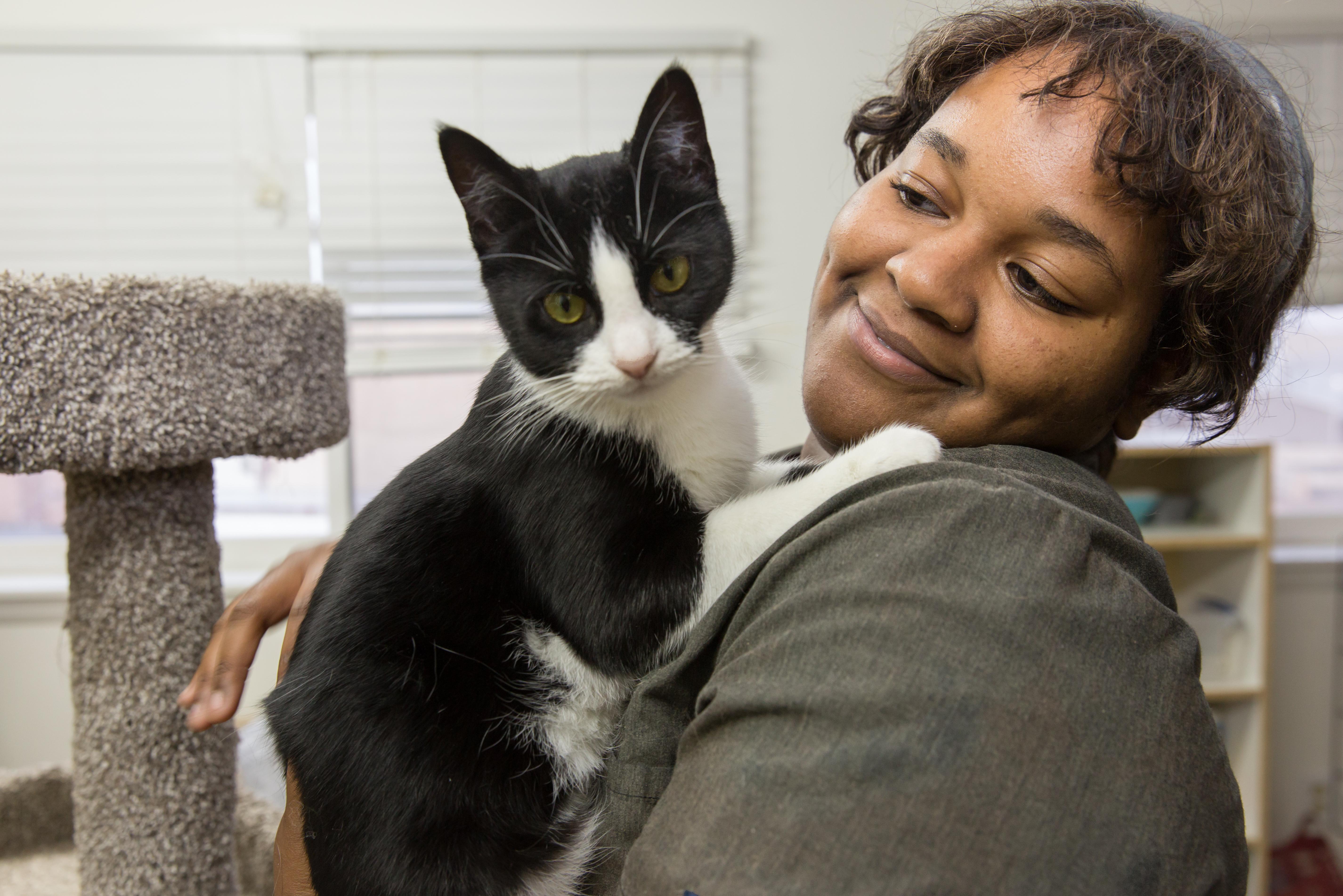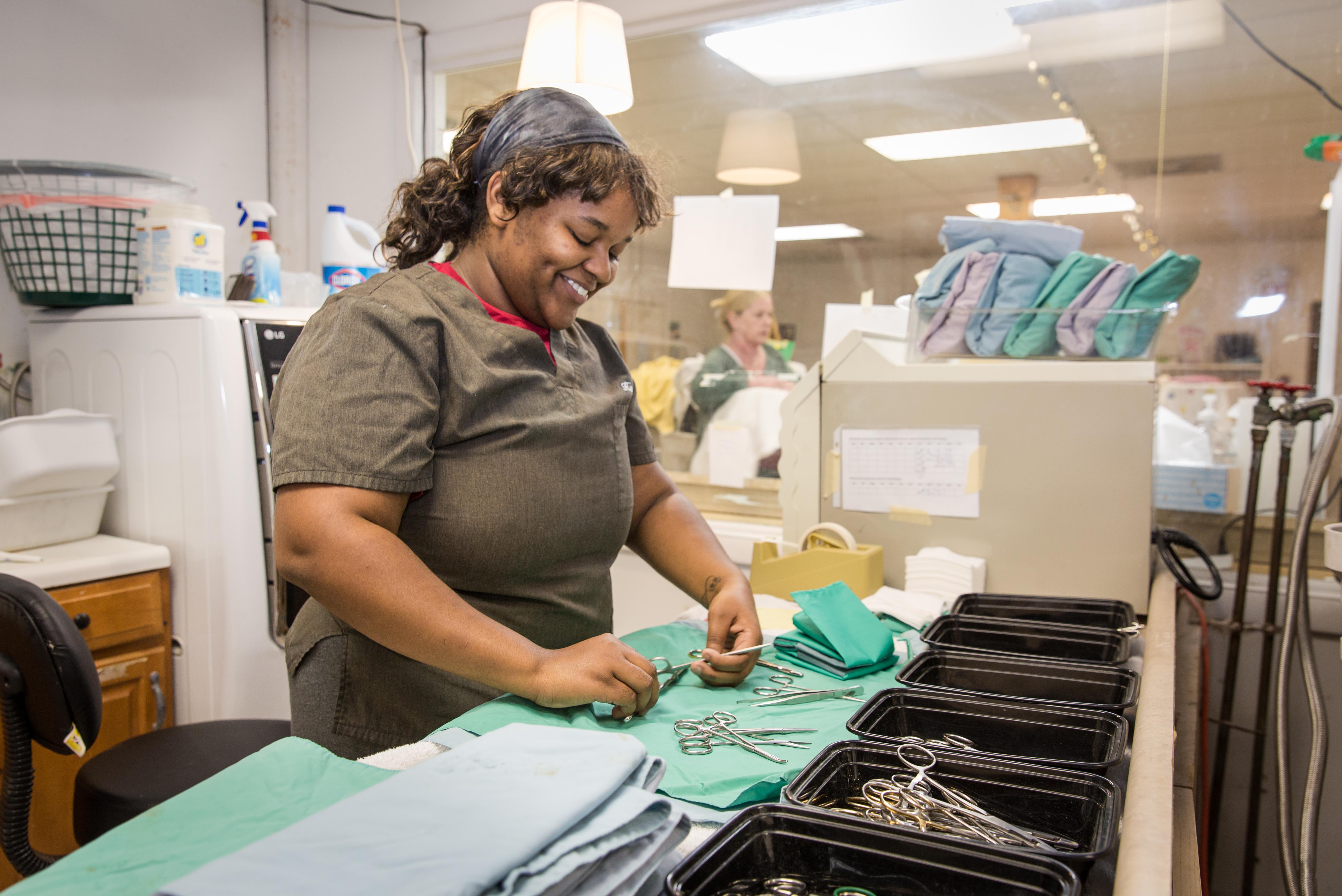Linton Works Toward Childhood Dream

Julisa Linton ’21 can’t remember an age where she didn’t love animals. As a child, she’d cry at ASPCA commercials. She’s cared for friends’ pets. She recalls telling her parents at the age of 11 that she wasn’t eating meat anymore because of that love.
Nine years later, her love for animals has remained. She’s earning a Biology degree in the pre-veterinary track, which is one of six pre-professional programs in the sciences offered by Arcadia. Additionally, she’s working as a veterinary assistant at Forgotten Cats in Willow Grove, where she prepares cats for surgery and cares for them post operation, which is a work study position through the Community and Civic Engagement Center.
Forgotten Cats is the leading trap, neuter, vaccinate, return (TNVR) nonprofit in the region, which has clinics in Pennsylvania and Delaware that specialize in low cost spay and neuter services for feral cats. However, the organization also offers adoption services for cats that are socialized or abandoned by owners.
“A lot of children say they want to be vets to help animals, but I want to do more than just donations and crying over videos,” said Linton. “It’s been building since I was 11, but now when I say that I want to be a vet it’s because I want to help find treatments for diseases like FIV, which is HIV for cats, and feline Leukemia.”
While Linton started off helping to clean cages, sterilize surgical instruments, and building “kits,” which is an arrangement of surgical tools so the veterinarian can easily access them during an operation, she now ensures that cats are ready for surgery by administering a low-dose anesthesia, as well as preparing them for surgery based on gender, and for female cats, if they’re nursing or not. In post-care, she cleans their ears, trims their nails, and gently begins to wake them up with head pets and cuddles. On “slow” days, which could still consist of over 70 surgeries, Linton also observes operations.
“The vet at Forgotten Cats is really open to answering my questions, and explaining different things to me,” said Linton, who has been provided opportunities to learn because of her responsible nature and curiosity. “We love Julisa,” was exclaimed by many of her co-workers on a recent visit to Forgotten Cats, and Linton can often be found proudly sporting her Forgotten Cats t-shirt around campus.
However, it’s easy to love playful cats, but what about wildlife? Linton didn’t even blink an eye when she went toe-to-toe with a rescued red hawk named Cheyenne this summer as a volunteer at Freedom Center for Wildlife. Linton describes it as “showing her who’s boss,” but as the hawk was spreading her wings and squawking, she calmly stood her ground and “let her get it out.”
“The way that her wings came out, the air just blew me back,” said Linton. “The only way I knew to stay calm was to talk to her, so I was like ‘Yeah, tell me about it. You know, he did the same thing to me too,’ as I’m slowly backing up. She only did that the first few times I fed her, and then after that she was fine.”
In addition to Cheyenne, Linton also helped care for baby blue jays, opossums, and squirrels, as well as Cologne, a skunk who was struck by a car and now lives at the center permanently. Linton said he’s her favorite, as she cared for him after a surgery to remove a cyst.

Linton prepares a kit.
As the recipient of the 2020 Vira I. Heinz Program for Women in Global Leadership scholarship, Linton plans to work with agricultural and exotic animals this summer. She’s exploring two possible programs in Belize. The Vira I. Heinz Program for Women in Global Leadership constitutes a collaboration between the Heinz Endowments and the University of Pittsburgh. Arcadia is one of 14 institutions to participate in the program, and each year three students from each are provided awards of at least $5,000 to fund their study abroad experiences.
While Linton loves cats, and skunks, she’s actually planning to specialize as a small animal veterinarian, with a master degree in exotic animal research. She has a list of about 10 veterinary schools she’s thinking of for graduate school, which has grown and shifted as she gets closer to graduating next year.


